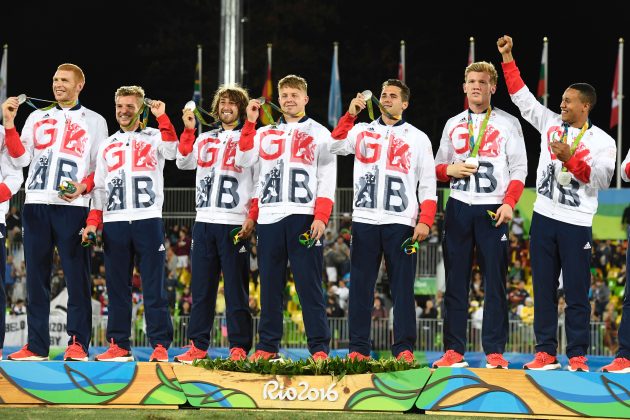With England and Wales having scrapped their sevens programmes, is the time right to create one unified team on the circuit? Read this debate from our September 2020 issue
Face-off: Should men’s Team GB join the World Sevens Series?
ROB VICKERMAN
The former England Sevens captain
“Sevens is its own entity now, it’s an Olympic sport and you can’t have people coming in thinking, ‘I’ll have a crack and then go back to 15s’. It’s a different game completely now and there is a focus on specialist sevens players.
I’m pro having a Great Britain team on the World Sevens Series because it’s a more powerful commercial entity than England, Scotland and Wales individually, and sponsors can be aligned with an Olympic team.
Another reason to move towards a GB team is the investment needed. You’ll have fewer players than if you have England, Scotland and Wales teams, so you’ll be able to pay them a better salary and there will be more competition for places.
Wales are not competitive on the series and have struggled to pull squads together [the WRU announced on 28 August that its men’s sevens programme would cease to operate for the foreseeable future due to the ongoing impact of Covid-19]. Scotland cite it as a development pathway but the only person to really come through in recent years is Darcy Graham. If Scotland do see sevens as a pathway, they need to invest more in it.

Exception: Scotland wing Darcy Graham transitioned to Test rugby from sevens (NurPhoto)
One caveat is that the series should reduce to 12 teams, so the men’s and women’s events are the same. If you get rid of England, Scotland and Wales as individual teams and have GB that gets rid of two teams. And then you move the two at the bottom of the table, who are likely out of their depth, into the Challenger Series.
Some fans look at it patriotically and how teams aren’t wearing the badge, but sevens is more of an event-based product; it’s not purely about supporting England or Wales.
There needs to be change and now is a great time to do it.”

One in the eye: Rob Vickerman fends off a Fijian tackle in the USA Sevens in San Diego, 2009 (Getty)
COLIN GREGOR
The former Scotland Sevens captain
“I can’t see a merger being good news for Scotland and I’d oppose it. I might think differently if we had more than two pro teams or if Edinburgh and Glasgow had A teams for younger players to play in, but we don’t and there’s no sign of us getting any more than two in the distant future. The sevens is the closest thing we have to a third team and we must protect it.
The SRU introduced the Super Six in a bid to help bridge the gap between amateur and professional rugby, but the early reports are that it’s not working – the gulf is too big. Talented young players need to play at a higher level and there’s a bit of a roadblock in Scotland with us only having two professional outfits.

International colours: Glasgow’s Kyle Steyn (Inpho)
This is about talented young players being given an opportunity to play. There are many examples we could look at but the most recent one is Kyle Steyn, Glasgow’s centre-cum-wing.
Kyle was on the fringes at Scotstoun. A game here and a game there. It wasn’t enough to help his development. He went away and played sevens and learnt a lot on the circuit. He came back and now he’s a full Scotland international.
Sevens is the bridge. The survival of the team was in serious doubt five years ago, but it’s found its niche now. A GB team on the World Series circuit might suit other countries, and perhaps World Rugby too. But it wouldn’t be a good move for Scotland.”
What do you think? Email your views to rugbyworldletters@futurenet.com
This debate first appeared in the September 2020 issue of Rugby World.





